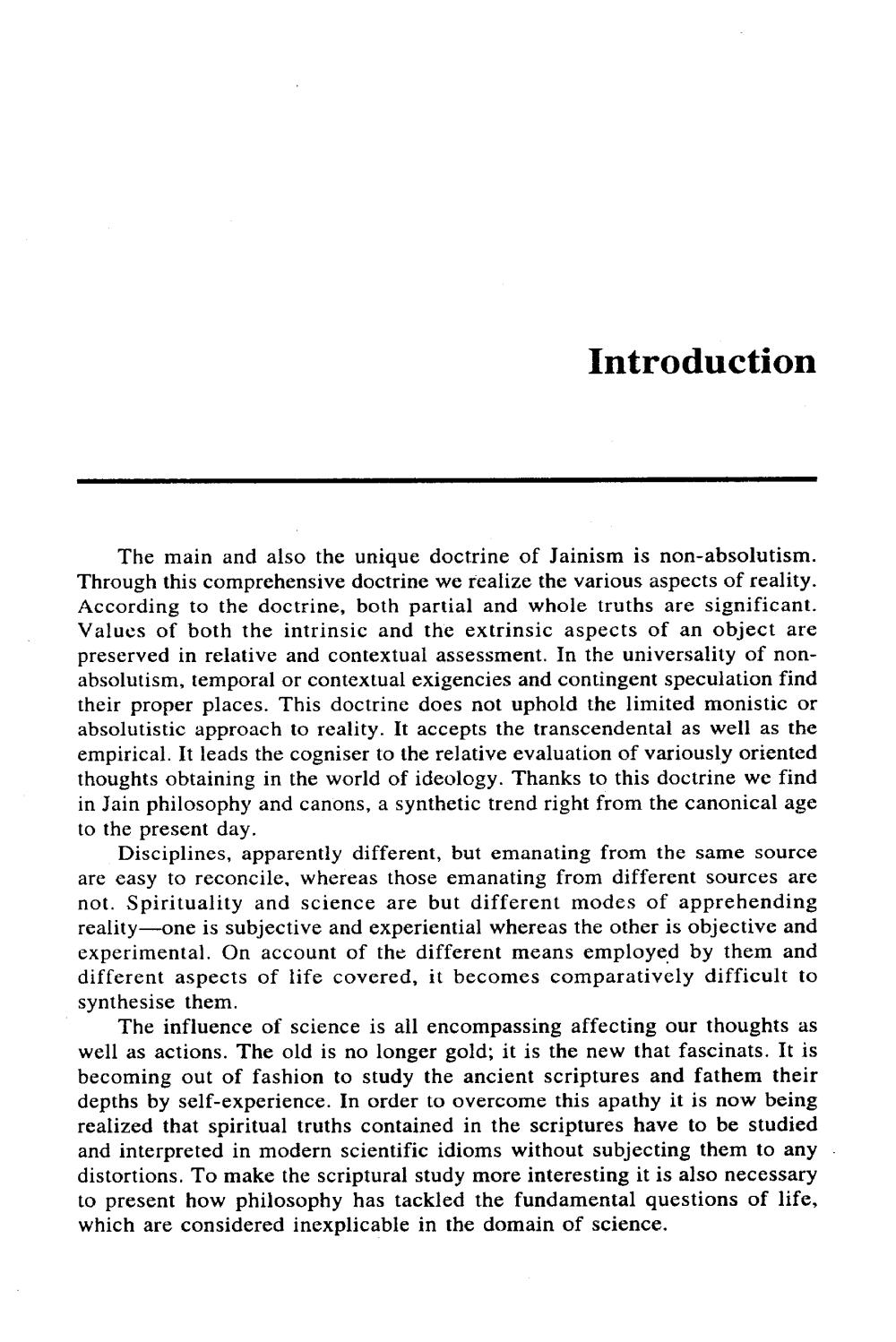________________
Introduction
The main and also the unique doctrine of Jainism is non-absolutism. Through this comprehensive doctrine we realize the various aspects of reality. According to the doctrine, both partial and whole truths are significant. Values of both the intrinsic and the extrinsic aspects of an object are preserved in relative and contextual assessment. In the universality of nonabsolutism, temporal or contextual exigencies and contingent speculation find their proper places. This doctrine does not uphold the limited monistic or absolutistic approach to reality. It accepts the transcendental as well as the empirical. It leads the cogniser to the relative evaluation of variously oriented thoughts obtaining in the world of ideology. Thanks to this doctrine we find in Jain philosophy and canons, a synthetic trend right from the canonical age to the present day.
Disciplines, apparently different, but emanating from the same source are easy to reconcile, whereas those emanating from different sources are not. Spirituality and science are but different modes of apprehending reality-one is subjective and experiential whereas the other is objective and experimental. On account of the different means employed by them and different aspects of life covered, it becomes comparatively difficult to synthesise them.
The influence of science is all encompassing affecting our thoughts as well as actions. The old is no longer gold; it is the new that fascinats. It is becoming out of fashion to study the ancient scriptures and fathem their depths by self-experience. In order to overcome this apathy it is now being realized that spiritual truths contained in the scriptures have to be studied and interpreted in modern scientific idioms without subjecting them to any distortions. To make the scriptural study more interesting it is also necessary to present how philosophy has tackled the fundamental questions of life, which are considered inexplicable in the domain of science,




